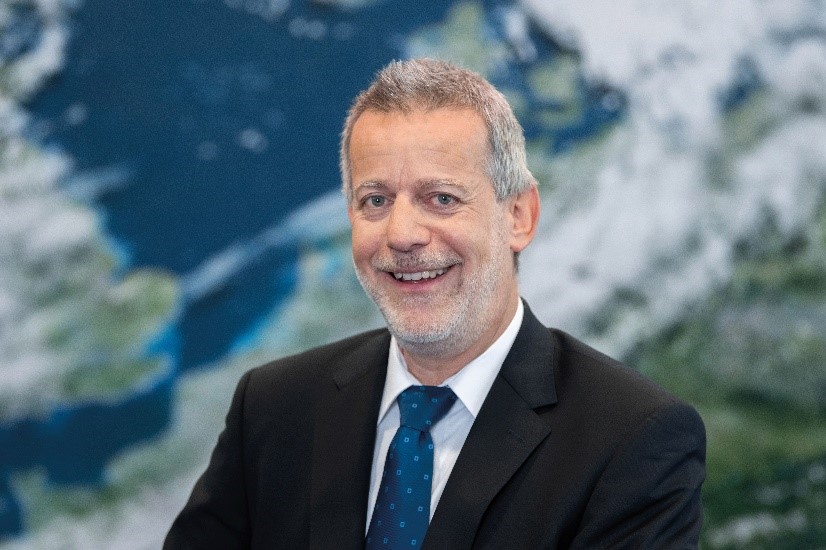
Tobias Fuchs: Interfaces of the Climate and Environment Division of the Deutscher Wetterdienst to the research in CESOC
Date: 13 December 2021
Time: 16:00 CET
Location: online via Zoom
Titelbild: ©Bildkraftwerk/Deutscher Wetterdienst
———
Abstract:
Interfaces of the Climate and Environment Division of the Deutscher Wetterdienst to the research in CESOC
Tobias Fuchs, Deutscher Wetterdienst (DWD)
The Deutscher Wetterdienst (DWD), Germany’s national meteorological service, supports the bridging of Earth system science to computer science and mathematics within CESOC, in order to raise the understanding and quality of weather and climate information services to a new level based on the next generation of Earth system models and Earth observation datasets.
DWD’s Climate and Environment Division (Klima und Umwelt, KU) is divided into 4 departments with a total of about 450 employees – with application-oriented research components as well as comprehensive advisory services. This includes climate monitoring based on in situ data sets, re-analyses and remote sensing, as well as modelling of future climate and its impacts. The knowledge gained is the basis for advising policy-makers and the economy, serving as precautionary measures in the event of weather-related disasters and providing sustainable support for disaster management. The DWD supports adaptation to the consequences of climate change in Germany, especially in the field of mobility in the various modes of transport, urban and regional development, water management, agriculture and health care. In this context, the DWD is a cross-sectional service provider both in the Federal Ministry of Transport and Digital Infrastructure (BMVI)’s own Basic Service ‘Climate and Water’ in support of the German Strategy for Adaptation to Climate Change (DAS) and for other federal ministries and authorities (e.g. in the joint climate impact and risk analysis of the federal government (KWRA) or the strategic alliance of authorities for adaptation to climate change in civil protection and disaster prevention) as well as for the state environmental authorities and municipalities. The disaster risk management and prevention aspects of extreme weather and the associated increase in resilience are also based on operational and continuously developed DWD climate information services. The further development of the climate information services is based on internal DWD research, basic research of the Hans-Ertel Centre (HErZ) for Weather Research, bilateral cooperation with research institutions, departmental research from the BMVI’s own network of experts, as well as third-party funded research within the framework of the Federal Ministry of Education and Research (BMBF) and EU-projects. In addition, the DWD is a user and provider of services for the EU Earth observation program Copernicus and aims to play a similar role in the future EU program Destination Earth (DestinE).
Through its Climate and Environment Division, the DWD can offer cooperation with CESOC by contributing to the extension of data inventories and reference data sets for Earth system monitoring, to the further development of climate models and, based on these observation and model data sets, to the generation of knowledge for various application areas and operational climate information services for the area of Germany. In addition to research on the further development of the DWD’s climate information services, the colloquium will also present interfaces and examples of possible concrete projects between the DWD and CESOC.
